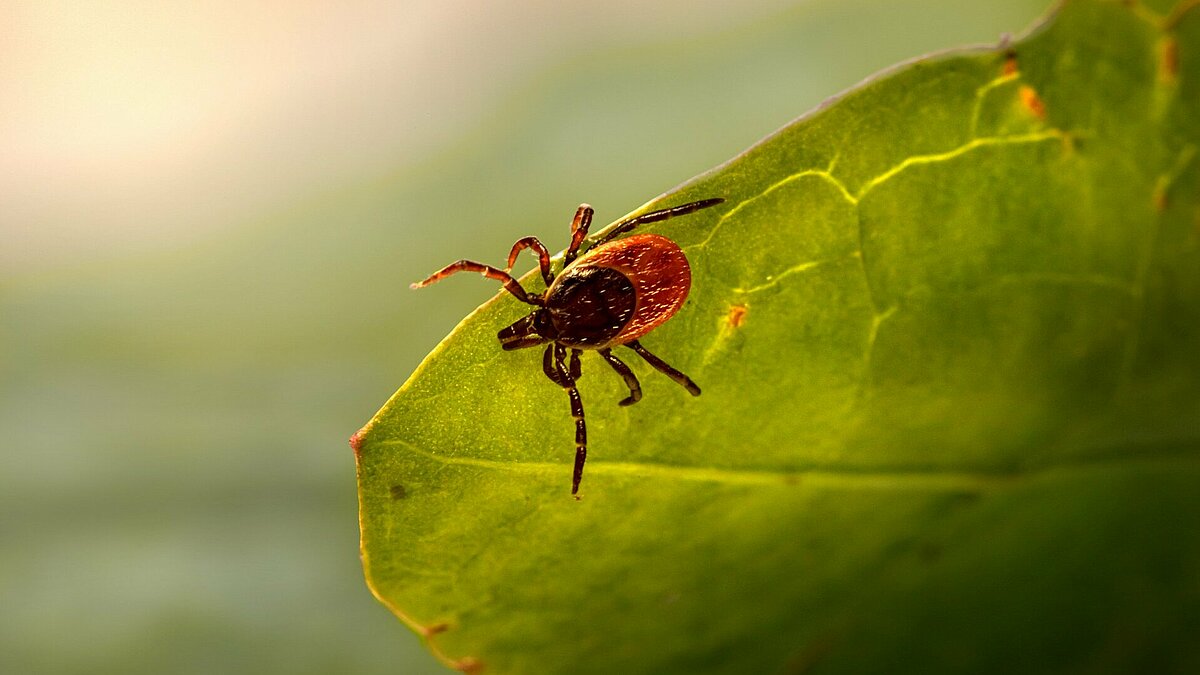
Tick-borne diseases: Babesiosis
The most common diseases that ticks transmit to dogs are babesiosis, anaplasmosis and lyme disease. In the first part of our three-part series, we look at babesiosis. Our vet Dr Alexander Hönel explains everything you need to know about it.
Babesiosis is a malaria-like blood disease transmitted by single-cell parasites (protozoa) through deer ticks. In the past, dogs were mainly infected with the disease when travelling abroad, but today it is firmly established in many places in Central Europe due to the spread of deer ticks. There is no need to panic though – 0.5 % of deer ticks carry babesia and it takes a few hours for the parasites to be transmitted to the dog from an attached tick.
It is best to check dogs for ticks immediately after every outdoor adventure.
Dr Alexander Hönel, IRO Veterinarian and Deputy Spokesperson for Deployment
The most important measure is to check the dog for ticks and collect them immediately. In addition, the use of repellents is strongly recommended to keep ticks away and kill them as quickly as possible before the parasites can be released.
The symptoms are often non-specific at first, the dog has a fever, shows a lack of appetite and energy, is weak and loses weight. The parasites are localised in the red blood cells and destroy them, resulting in anaemia. As the red pigment of the destroyed red blood cells is excreted in the urine, the urine becomes typically dark-coloured (bilirubinuria). Jaundice can possibly discolour the sclera of the eyes and the mucous membranes yellow, which are pale due to the anaemia. Respiratory distress and kidney failure may occur. The disease progresses at different rates depending on the dog's immunity and the Babesia species that has infected the dog - nine species are currently known. However, in the fastest case (peracute) it can lead to death within a few days.
Babesiosis is a disease that requires rapid diagnosis and treatment by a vet. The diagnosis is made by serological and microscopic blood tests (the babesia are visible in the blood smear). A vaccine (not authorised in Germany and Austria) is available, but is subject to controversy. Treatment with specific medication is possible. However, babesiosis remains a serious disease with a sometimes rapid progression, which is often fatal if left untreated.
The best way to prevent babesiosis is to protect your dog from tick bites. Use a repellent that is well tolerated by your dog and make it a habit to check your furry friend immediately after your walk through meadows and woods.
Author: Dr. Alexander Hönel
Photos: Erik Karits, Unsplash
